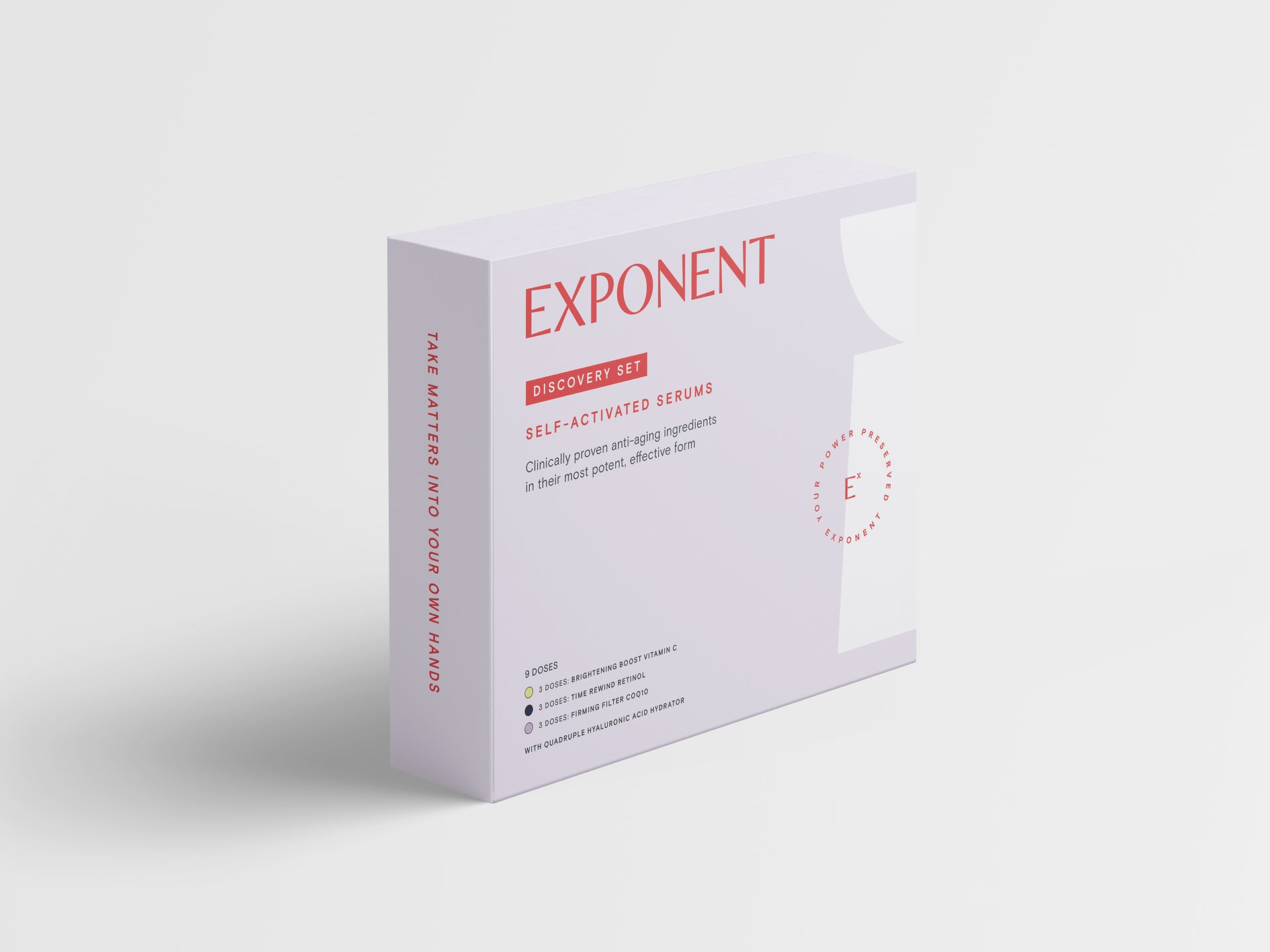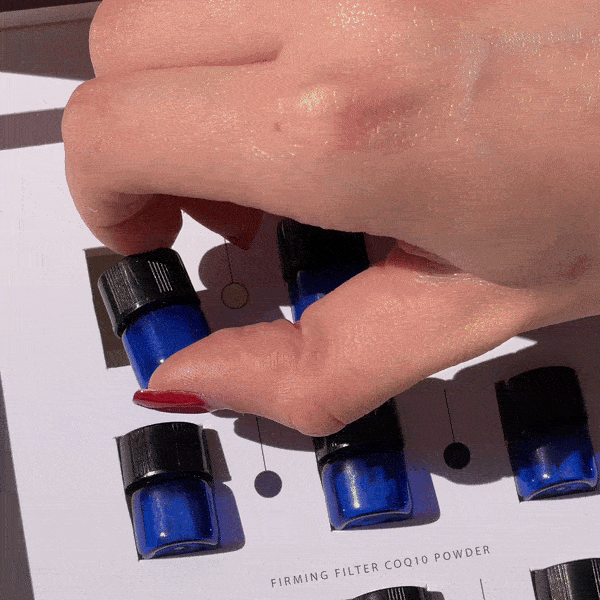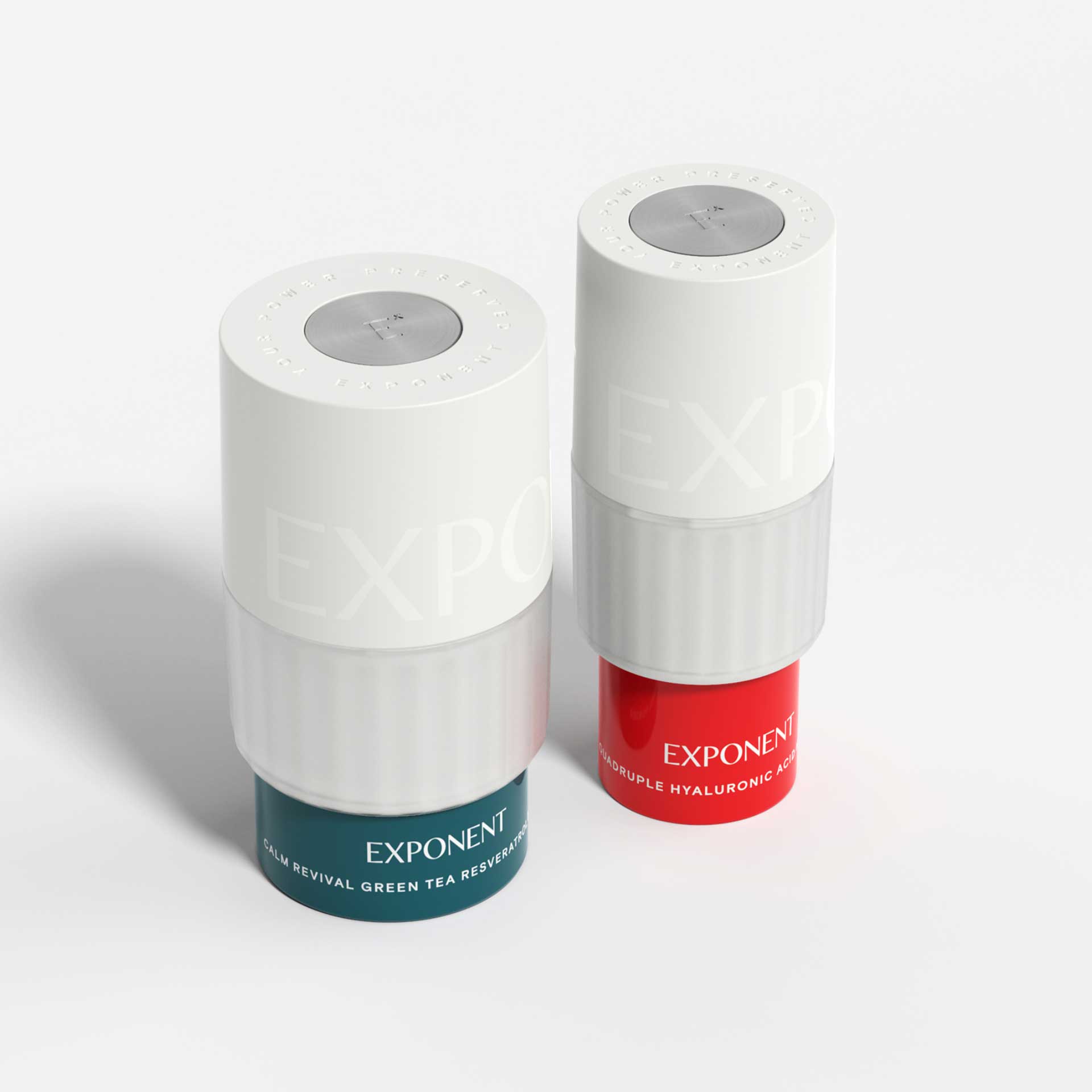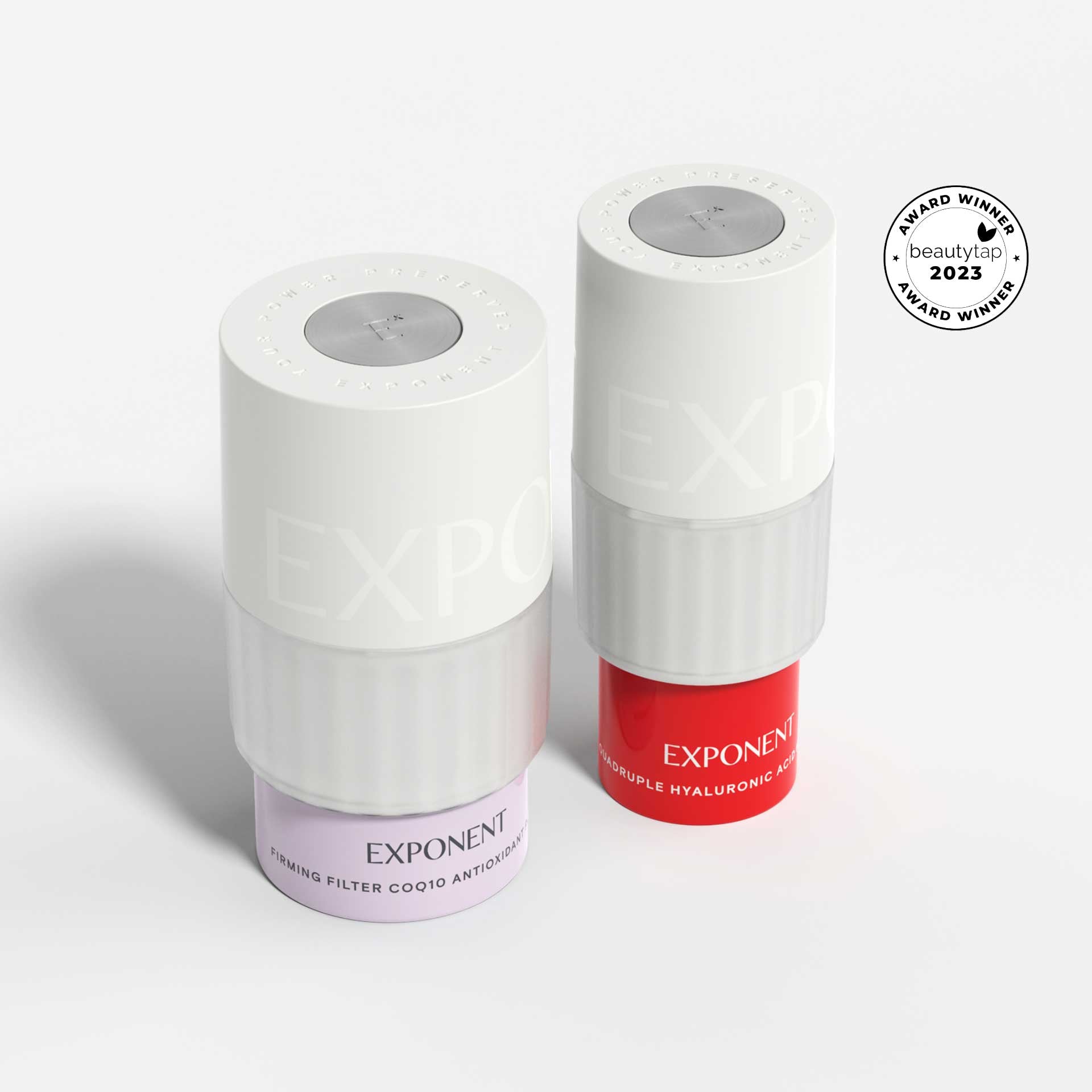Hydrated, plump skin is the goal. Unfortunately there are many factors that can lower the water level in the skin such as aging, sun damage, or an inadequate routine. These common experiences lead many people to struggle with a dehydrated complexion at one point or another. The absence of sufficient water in the skin can show itself in many ways: exhibiting dullness and breakouts, feeling tight, causing fine lines to appear more visible, and making the skin sensitive, red, and itchy. This post will cover what dehydrated skin is, the best tips for parched skin and which ingredients your routine should include so that you'll never struggle with a thirsty complexion again.
What is Dehydrated Skin?
Dehydrated skin is a temporary condition describing skin that lacks water. This can make the complexion appear rough and dull with more visible wrinkles, uneven tone, and a lack of radiance. An imbalance between water intake and water loss leads to skin dehydration. If a case of dehydrated skin goes unsolved, endless skincare concerns can occur and discoloration, breakouts, visible fine lines, and dullness are just the beginning[1]
What Causes Dehydrated Skin?
The most common causes of dehydrated skin include aging, excessive sun exposure, and inadequate skincare products. Aging can make the skin lose water at an accelerated rate due to decreased elastin and collagen fibers, which weakens the protective barrier and speeds up water evaporation.
A compromised barrier leads to intense transepidermal water loss (TEWL), a direct cause of skin dehydration, so maintaining a resilient protective barrier should be top of mind. Additionally, hot showers, cold weather, lack of sleep, sweating, and not drinking enough water are also causes of skin dehydration.
Signs of Dehydrated Skin
Do you feel like your skin is reactive, rough, and red, no matter what you do? Listen to your complexion. If you notice some of these signs, you know you're dealing with dehydrated skin:
- More visible fine lines and wrinkles
- Sensitivities
- Dullness
- More noticeable dark circles
- Redness
- Breakouts
Dry Skin vs Dehydrated Skin - How to Tell the Difference
Dry and dehydrated skin are often mistaken for one another, so let’s review the difference between the two. Dry skin is a skin type (often inherited) that lacks sufficient sebum — the oil that keeps skin moisturized. Dehydrated skin, however, is a condition that occurs when the body loses more water than it takes. Simply put, dry skin is the result of a lack of sebum, while dehydrated skin is due to a lack of water. This makes the latter easier to fix since it is often a consequence of environmental factors and lifestyle, unlike dry skin, which is induced by the slow activity of oil-producing sebaceous glands.
Now that you know how to tell the difference between the two, it's time you find out more about what you came for: how to help dehydrated skin.
How to Treat Dehydrated Skin
Above everything, it's essential to maintain a proper barrier function to prevent further water evaporation. A fortified barrier hinders TEWL, keeping skin hydrated, plump, firm, and elastic.[2] In order to reinforce the barrier, you need to use skin-replenishing and moisture-trapping actives, like peptides, ceramides, and squalane.
Using humectants should be your priority as these work by binding water molecules to the skin, thus increasing hydration. The best way to benefit from humectants is in the form of serums, as their small molecules deliver actives in the deeper layers of the skin. Out of all humectants, glycerin, panthenol, and hyaluronic acid are the best.[3] If you use multiple weights of hyaluronic acid, you hit it big, as that's how you get instant and long-lasting hydration.
While serums deliver hydration to the skin, moisturizers serve as sealers and lock all the benefits in, which is critical for preventing dehydration. When it comes to moisturizer, look out for a mix of humectants and occlusives so that when you slather it on, it will pull water into the skin while preventing TEWL. The most potent occlusives are petroleum jelly, shea butter, oils rich in oleic acid (like argan oil), beeswax, squalane, and dimethicone.[4]
Lastly, exfoliation is mandatory for keeping skin healthy but can be a double-edged sword for dehydrated skin. When the skin is parched, you should exfoliate with only the gentlest peeling agent with humectant activity: lactic acid.
What Are the Best Ingredients for Dehydrated Skin?
Since it's caused by excess water loss, it makes sense to say the best ingredients for dehydrated skin are the ones that add water. While that's true, your routine should also include actives that prevent water evaporation, aka occlusives. The best ingredients to treat dehydrated skin are:
- Glycerin: potent humectant that binds water molecules from the environment and draws them into the skin
- Hyaluronic acid: a humectant that increases water levels by attracting water from the environment
- Panthenol: or vitamin B5, a powerful humectant that increases water in the lawyers of your skin, pulling it from the atmosphere
- Peptides: triggers collagen production, reinforcing the barrier and preventing water loss
- Squalane: oil-like substance similar to sebum that locks water into the skin, helping keep it hydrated
- Shea butter: a natural ingredient with occlusive properties that hinders water evaporation from the skin
Tips for Dehydrated Skin
Fixing dehydrated skin goes beyond your skincare routine. The products you use in your skincare regimen work harmoniously with several lifestyle choices. Here are some tips for those who wonder how to help dehydrated skin in addition to their hydration-boosting skincare regimen:
- Drink eight glasses of water per day
- Avoid washing with hot water
- Use a humidifier
- Reduce consumption of diuretics, like caffeine and alcohol
- Eat foods that support the skin's lipid barrier, like nuts and avocado
- Never skip on sunscreen
- Dodge harsh scrubs and cleansers with sulfates
- Decrease frequency of AHA, BHA, and retinol use
Frequently Asked Questions About Skin Hydration
Because dehydrated skin is a broad concern with plenty of downsides in the skincare world, numerous inquiries revolve around the topic. Here we answer your most burning questions about skin hydration so that you can always stay on the quenched side.
What does skin look like when it's dehydrated?
Dehydrated skin looks dull, fine lines and wrinkles are more noticeable, and the tone is uneven. When the skin is dehydrated, dark circles around the eye area appear more visible, lips may become chapped, and skin can easily become red and itchy. Ironically, breakouts are likely to occur when the skin gets dehydrated as the sebaceous glands get signals to produce more sebum in order to replenish the moisture loss.
Why is my skin dehydrated?
Your skin may be dehydrated because you use drying ingredients, over-exfoliate, don't use humectants and occlusives, take long hot showers, spend too much time in the sun, or live in a low humidity area. Not drinking enough water can also be a cause of dehydrated skin. Generally, the body needs four-to-six cups of water per day, but this varies from person to person, depending on their lifestyle and environment.[5] For instance, during hot seasons, the body loses more water through sweat. Maintaining a daily balance of water can be different for each person depending on exercise habits and weight as well.
Can drinking water fix dehydrated skin?
Drinking about 2 liters of water helps skin stay hydrated and regulates sebum, which keeps skin moist and helps maintain a balanced pH.[6][7] However, no data shows that drinking more water than the recommended daily intake increases skin hydration. Joshua Zeichner, MD, a board-certified dermatologist in New York City, affirms that "The solution is topical rather than internal." [8] This means your skincare routine plays a major role in preventing and fixing dehydrated skin.
How do you hydrate your skin overnight?
The quick way to hydrate your skin overnight is to use a gentle face wash, a serum with hyaluronic acid, and a heavy moisturizer to lock hydration in. You can also use a face oil post moisturizer to seal even more moisture. Remember to apply your hyaluronic acid serum to damp skin so it has an optimal environment to pull that water into your skin. If you need a refresher, check out: how to layer your skincare products.
When to use hyaluronic acid serum?
Use hyaluronic acid serum in both your AM and PM skincare routines for the pinnacle of hydration. Apply hyaluronic acid after cleansing and toning your complexion and before moisturizing and applying sunscreen.
What does hyaluronic acid do for acne?
As one of the most lauded humectants, hyaluronic acid benefits are hard to overlook. Hyaluronic acid is great for breakout-prone complexions as it helps regulate sebum production by increasing hydration in the skin. [9] A common cause of excess sebum that leads to breakouts is dehydration — when skin is parched, the sebaceous glands secrete more oil to keep the skin moist. Moreover, hyaluronic acid has soothing and anti-inflammatory properties, both needed by acne-prone skin, and also reduces redness that often comes with acne.
Uplevel Your Skin Hydration Routine Today with Exponent Beauty
At Exponent, results come first. Our mission is to make your life easier and create effective skincare products that deliver. All of our active powders can be mixed with the Quadruple Hyaluronic Acid Hydrator, which includes four molecular weights of hyaluronic acid for instant and long-term hydration. Additionally, our hydrator contains another four humectants for a serious dose of hydration. Some of our active powders can increase moisture in the skin as well. Brightening Boost Vitamin C Serum decreases TEWL by inducing collagen production, and our Calm Revival Green Tea Resveratrol Serum contains green tea and resveratrol that support skin hydration even better when paired with hyaluronic acid. Happy hydrating!
Footnotes
- Duplan H, Nocera T. Hydratation cutanée et produits hydratants [Skin hydration and hydrating products]. Ann Dermatol Venereol. 2018 May, Source
- G Grubauer, P M Elias, K R Feingold, Transepidermal water loss: the signal for recovery of barrier structure and function., Journal of Lipid Research, Source
- Radosław Balwier, Paweł Biernat, Natalia Schäfer, Dominik Marciniak, Assessment of the moisturizing potential of a two-phase topical care product containing vegetable oils, glycerin, panthenol, and sodium hyaluronate - a preliminary study, June 2022, Source
- "Occlusives." Cosmeceuticals and Cosmetic Ingredients Ed. Leslie Baumann. McGraw Hill, 2015, Source
- Harvard Health Publishing, Harvard Medical School, How much water should you drink? May 15, 2022, Source
- Palma L, Marques LT, Bujan J, Rodrigues LM. Dietary water affects human skin hydration and biomechanics. Clin Cosmet Investig Dermatol. 2015 Aug 3, Source
- Akdeniz M, Tomova-Simitchieva T, Dobos G, Blume-Peytavi U, Kottner J. Does dietary fluid intake affect skin hydration in healthy humans? A systematic literature review. Skin Res Technol. 2018 Aug, Source
- RealSimple, Does Drinking Water Actually Hydrate Dry Skin?, Source
- Jung YR, Hwang C, Ha JM, Choi DK, Sohn KC, Lee Y, Seo YJ, Lee YH, Kim CD, Lee JH, Im M. Hyaluronic Acid Decreases Lipid Synthesis in Sebaceous Glands. J Invest Dermatol. 2017 Jun, Source







